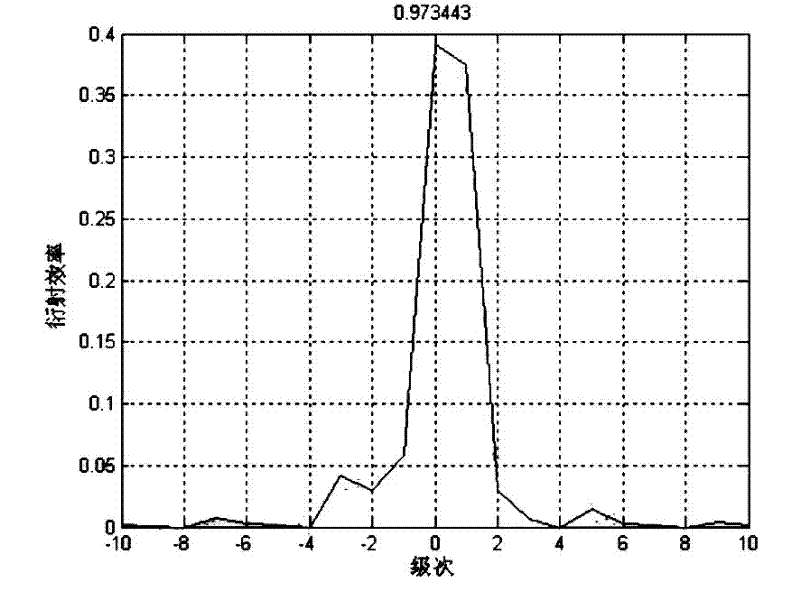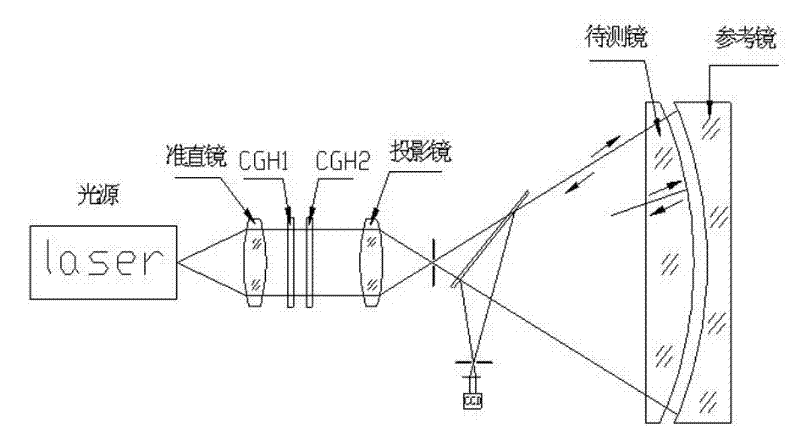Computer-generated holograms
A computational holography, thin flat sheet technology, applied in diffraction grating and other directions, can solve problems such as difficulty in reaching spectroscopic devices, and achieve the effect of convenient processing
- Summary
- Abstract
- Description
- Claims
- Application Information
AI Technical Summary
Problems solved by technology
Method used
Image
Examples
Embodiment 1
[0019] Embodiment one: see figure 1 and figure 2 As shown, a computational holographic sheet is composed of repeated arrangement of phase-type microstructure units S arranged on a thin flat sheet, and each phase-type microstructure unit S contains four platforms arranged in order from low to high, and each The platforms constitute a phase, and the width of each phase platform (A1, A2, A3) is the phase width, which is 1 / 4 of the total width of the phase microstructure unit. Taking the lowest platform as the relative zero point, the phase heights of the other three phase platforms are d1, d2, and d3 respectively, satisfying d3-d2=d1.
[0020] In this embodiment, the phase height d1 is , .
[0021] The proportion distribution of different energy level energy in this embodiment to the total energy is shown in the attached figure 2 As shown, it can be seen from the figure that the energy of the diffraction energy level 0 and 1 is equal (the error does not exceed 5%), which...
Embodiment 2
[0022] Embodiment 2: The computational hologram of Embodiment 1 is applied to an example of dual CGH detection of off-axis convex aspheric surfaces. The optical path structure of this embodiment is as image 3 As shown, the specific optical path analysis can be found in the appendix Figure 4 , the +1 level (or -1 level) light generated by CGH1 is split by CGH2 and divided into two beams, one of which is the reference light, which is reflected by the reference surface, and one is the detection light, which is reflected by the lens to be tested. Then the two light beams are combined and imaged by interference on the CCD. Through the identification of interference fringes, analyze and judge the mirror error.
[0023] From Figure 4 It can be known from the above that to make the image contrast on the CCD very good, it is required that the 0-level and 1-level energies of the emitted light of CGH2 are equal. Therefore, the computational hologram of the first embodiment is used...
PUM
 Login to View More
Login to View More Abstract
Description
Claims
Application Information
 Login to View More
Login to View More - R&D
- Intellectual Property
- Life Sciences
- Materials
- Tech Scout
- Unparalleled Data Quality
- Higher Quality Content
- 60% Fewer Hallucinations
Browse by: Latest US Patents, China's latest patents, Technical Efficacy Thesaurus, Application Domain, Technology Topic, Popular Technical Reports.
© 2025 PatSnap. All rights reserved.Legal|Privacy policy|Modern Slavery Act Transparency Statement|Sitemap|About US| Contact US: help@patsnap.com



